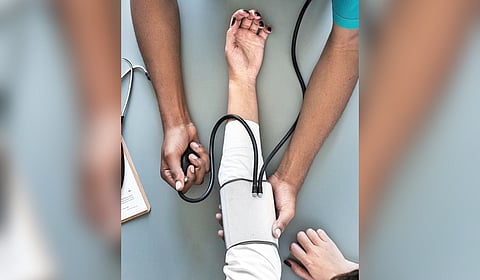

PATNA: Bihar is grappling with a severe shortage of doctors and paramedical staff, with the majority of blood banks in the state operating without valid licenses, according to a CAG report submitted to the assembly.
The CAG's performance audit report on Public Health Infrastructure and the Management of Health Services for the period 2016-2022 was tabled during the winter session of the assembly.
In Bihar, 1,24,919 doctors were required to serve the projected population of 12.49 crore (as of March 2022) to meet the World Health Organization (WHO) recommendations. However, only 58,144 allopathic doctors were available in the state (as of January 2022), reflecting a shortfall of 53% against WHO norms and 32% below the national average.
In primary and secondary healthcare facilities across the state, 23,475 (61%) and 18,909 (56%) positions, respectively, were vacant against the total sanctioned strength. Similarly, 49% and 82% of positions were unfilled in tertiary and AYUSH healthcare facilities, respectively. Overall, there was a shortage of 35,317 personnel (60%) against the sanctioned strength, the report stated.
Regarding blood banks, the report noted, “Audit reviewed records of six blood banks and found critical equipment shortages during inspections. Consequently, their licenses were not renewed. Despite this, the blood banks continued operating without valid licenses.”
The CAG report also scrutinized procurement data from the Bihar Medical Services and Infrastructure Corporation Limited (BMSICL), the central agency responsible for managing drug supplies for medical institutions. Between 2016-17 and 2021-22, 35% to 74% of medicines received had already lost a significant portion of their shelf life. “Additionally, most drugs with less than 75% of their shelf life were locally manufactured. In some cases, drugs nearing expiration were not withdrawn by BMSICL,” it stated.
Physical inspections of 25 ambulances revealed that none were equipped with the necessary equipment, medicines, or consumables. “The shortage ranged from 14% to 100%,” the report added.